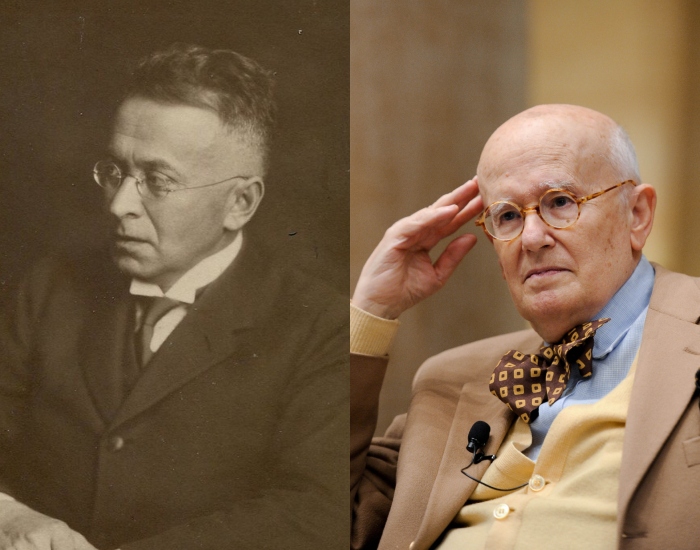Aphorisms (more or less famous) in freedom

Michael the Great's Notepad
Democracy must be earned; the dictatorship deserves it.
(Roberto Gervaso).
The degree of civilization of a society is measured by its prisons.
(Fyodor Dostoyevsky)
Never was an era like this so favorable to daffodils and exhibitionists. Where are the saints? We'll have to settle for dying in the smell of advertising.
(Ennio Flaiano)
I dare not think, if he had lived today, of Giuseppe Ungaretti's electricity bill when he lit up immensely.
(Mi.Ma)
Marco Rizzo's Communist Party has decided to cut ties with Marxism-Leninism and convert to the environmental creed. Therefore, he chose a new symbol – fern and blueberry.
(Mi.Ma)
Paraphrasing George Bernard Shaw, there are six categories of lies: the simple lie, the diplomatic lie, the weather forecast, the polls, the official statement, the pacifism of Giuseppe Conte.
(Mi.Ma)
Demagogues and laxatives have this in common: they move the belly of the masses.
(Mi.Ma)
To the Italians who complain about not having slept through the New Year's barrels, I would like to remind you that even the Ukrainians have not slept through the New Year's barrels.
(Mi.Ma)
Witches ceased to exist when we stopped burning them, said Voltaire. Thankfully, Iranian women continue to sing and protest, to be flippant and to disobey, even in suffering and humiliation.
(Mi.Ma)
To the prefect who defined 35 migrants as a "residual load" I sent a copy of a short text by Luigi Einaudi, "Via il prefetto! (1944).
(Mi.Ma)
Pacifists, to a large extent, either belong to obscure religious sects or are simply philanthropists who refuse to accept life as it is and go no further than this point. Yet there is a minority of pacifist intellectuals whose real – though unacknowledged – motivations are hatred of Western democracy and admiration of totalitarianism.
(George Orwell, "Notes on Nationalism", 1945).
There are those who march for peace and those who march for peace.
(Mi.Ma)
To the pure in spirit who believed in it. To the Iranians and Ukrainians who have not stopped thinking that it was worth living and resisting. To those who didn't give up, to those who fought, to those who didn't betray their ideals. To those who have not succumbed to easy flattery. To those who have maintained dignity and consistency. To all of them my utmost respect.
(Mi.Ma)
Al Bano has confirmed that he will no longer sing in Russia. It's over for Putin.
(Mi.Ma)
Demagogues and laxatives have this in common: they move the belly of the masses.
(Mi. But)
Morality paralyzes, attacks the brain, blinds, dries up the vital lymphs, hardens the arteries. We cannot undertake anything in this world, exercise a job, solve a problem without the corrupting influence of morality making itself felt. If it is a matter of artistic evolution, we are moralists; if we are dealing with novelties of a practical order, we are moralists; one dies of fever, and we infect him with morals.
(Karl Kraus, “Die Fackel”, 1899-1936)
In an interview with the French journalist Marcelle Padovani, Leonardo Sciascia attributed an anthropological meaning to the absence of the future tense in his land: “The fear of tomorrow and the insecurity here are such that we ignore the future form of verbs. You never say tomorrow I'll go to the countryside, but 'dumani vaju in the countryside', tomorrow I'm going to the countryside. We speak of the future only in the present. So when I am asked about the original pessimism of the Sicilians, I feel like answering: How can you not be a pessimist in a country where the verb in the future does not exist?” (“Sicily as a metaphor”, Mondadori, 1979). In truth, the absence of the future is recorded in many southern and northern dialects, and even in spoken Italian. But this is not the point. Paraphrasing Sciascia, how can we not be pessimistic in a country where the majority of voters, left and right, pride themselves on not giving a damn about the past?
(Mi.Ma)
Three quotes. The first: “University professors hold unparalleled knowledge […]. With very few exceptions, no novelist, journalist, or high school professor could stand the cross-examination with a college professor […]. The existence of the university is the imperishable proof of the hierarchical division of society. Since men have begun to associate and cooperate, the superior and the inferior have arisen, where the former exercises dominion over the latter […]. (Alessandro Orsini, Il Messaggero, February 7, 2020). The second: "I am an elementary school teacher in a small village called Trattenbach", wrote Ludwig Wittgenstein on October 23, 1921 to his teacher and friend Bertrand Russell. The third: "He was like that rooster who thought the sun would rise to hear him crow" (George Eliot). At this point, the question is: in your opinion, who is that rooster between prof. Orsini and the genius Austrian logician?
(Mi. But)
This is a machine translation from Italian language of a post published on Start Magazine at the URL https://www.startmag.it/mondo/aforismi-piu-o-meno-celebri-in-liberta/ on Sat, 14 Jan 2023 06:10:49 +0000.
